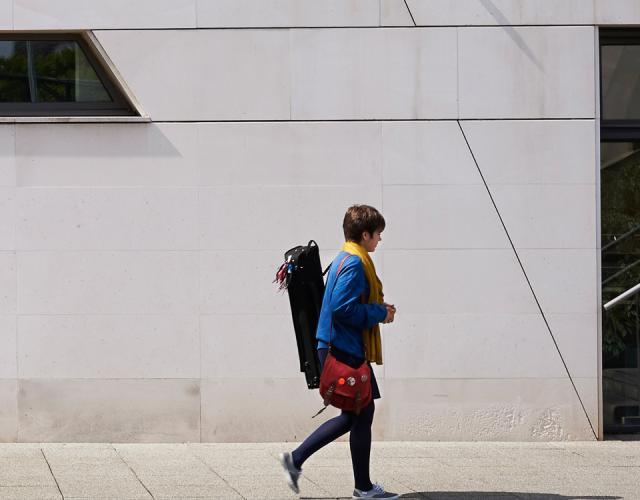
Viola - 1er Cycle
Information
-
Name
Viola
-
Cycle
1st Cycle
-
Course's number of years
3 years
-
Maximum duration
3 years
Students in the first and second years of the1st cycle who feel that they can complete the DNSPM at the end of the current academic year may sit the DNSPM final exam at the end of the first or second year instead of the final exam; if they fail the exam and/or are unable to validate all the disciplines attached to the DNSPM, they must continue their studies in the next year of the1st cycle and sit the DNSPM final exam again.
-
ECTS
180
-
Delivered diploma
National Higher Professional Diploma for Musicians (DNSPM)
The distinction (Très bien, Bien or Assez bien) qualifying the DNSPM is that awarded by the jury at the end of the DNSPM final examination.
The DNSPM in viola is also awarded to students who did not obtain a distinction in the DNSPM final examination but whose results in the first and second year examinations so permit, in accordance with the procedures described in Title I - article 5 of the study regulations.
-
Course objectives and content
Advanced training for instrumentalists :
- development of artistic sensitivity and individual and collective technical mastery ;
- broad cultural training in both practical and theoretical fields (complementary disciplines);
- awareness of the professional context.
-
French language certificate
B1
-
Number of complementary disciplines to validate
1
Disciplines
Entrance exam
Viola (undergraduate)
Opening date for registration : 10 October 2025
Closing date for registration : 14 November 2025
Exam dates : du samedi 21 février au jeudi 5 mars 2026 (répétitions incluses)
Visa
Non-EU candidates must apply for a short-stay “competition” visa in order to take part in the entrance examinations. If successful, this visa will then allow you to apply for a student visa. You should not apply for a tourist visa. More information here
French Language Level
Successful candidates who are not nationals of French-speaking countries must present upon first enrollment: a French language certificate (DELF or TCF) at level B1 or higher.
Audition
Eligibility
-
One work of the candidate’s choice from List A, set pieces announced December 10
-
One required étude, set pieces announced January 10
Admission
-
One required work, set pieces announced December 10
-
One required excerpt from a Sonata or Partita for violin, or a Suite for cello by Johann Sebastian Bach, set pieces announced December 10
-
Sight-reading
The CNSMDP will provide the candidate with an accompanist.
Maximum age : 24
